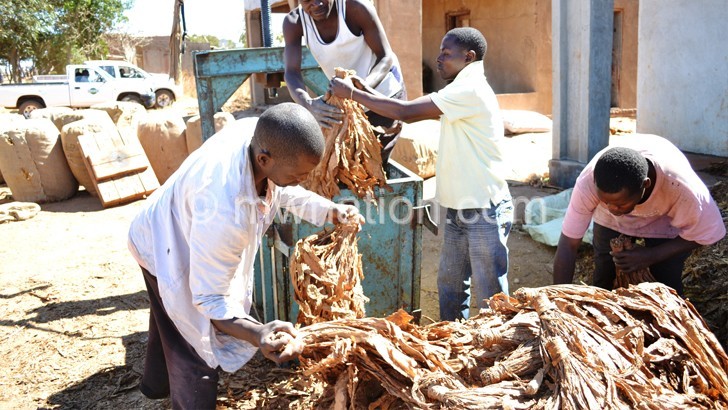No plans to stop Growing tobacco
Tobacco Association of Malawi (Tama), a representative body of tobacco farmers, says it has no plans to stop growing the leaf despite government moving towards signing the World Health Organisation Framework Convention on Tobacco Control (WHO-FCTC).
FCTC, which entered into force on February 27 2005, is the first treaty negotiated under WHO to protect present and future generations from devastating heath, social, environmental and economic consequences of tobacco consumption and exposure to tobacco smoke.

Tama chief executive officer Mathews Zulu said in an interview yesterday while being party to the agreement will give local farmers a platform to raise their concerns on challenges that would accrue if growing the leaf is limited
and eventually phased out, diversifying from tobacco farming will not happen in a day.
“We will have to first find alternative sources that would equally be viable and generate enough revenue for us as is the case with tobacco.
“Of course, we are also banking on the agreement for financial assistance as we will be planning on diversification, but for the mean time, we are hoping that being party to this agreement will give us a voice on the global scene,” he said.
Ministry of Agriculture, Irrigation and Water Development controller of agriculture services Alexander Bulirani said in an interview that it is becoming clear that Malawi needs to be party to the treaty because out of 53 countries in Africa, only Malawi, Ethiopia and Eritrea are not signatories.
“The issue is that we think it is better at this stage that we go and fight from inside because whether we are there or not, people are going to make decisions on tobacco.
“Now the important thing is that if we are inside, we can give our perspective. Under Article 26 of the convention, we can get financial assistance which can trickle down to the farmers to try and diversify their livelihoods,” he said.
Bulirani, however, said a tobacco farmer is even safer “because there are provisions in the convention looking at the trading of illicit tobacco that if not controlled it could affect the farmer”.
Tobacco Control Commission (TCC) board chairperson Inkosi ya Makosi M’mbelwa V said farmers are banking on various reforms in the sector to improve their welfare and income generation, urging policymakers to put in place policies that are good for farmers.
According to the treaty, its provisions include rules that govern the production, sale, distribution, advertisement and taxation of tobacco. n





